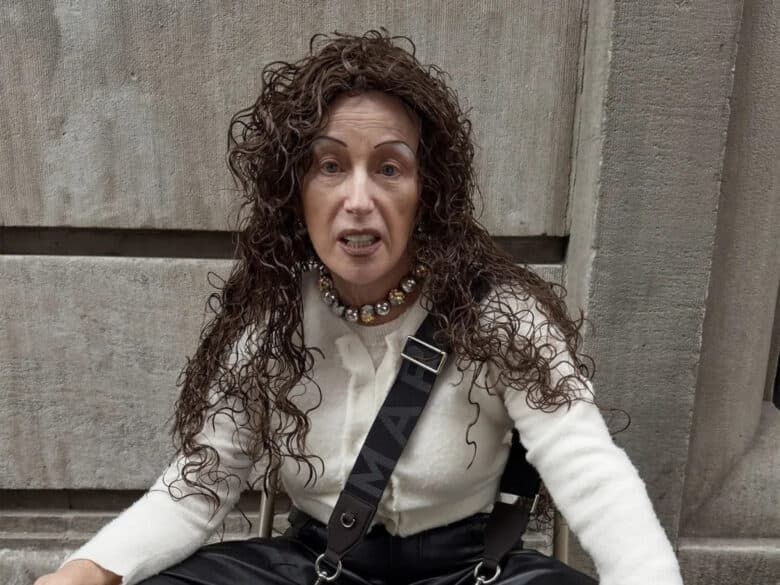“There just isn’t enough support”: Peter Capaldi on the lack of creative opportunities for the working-class
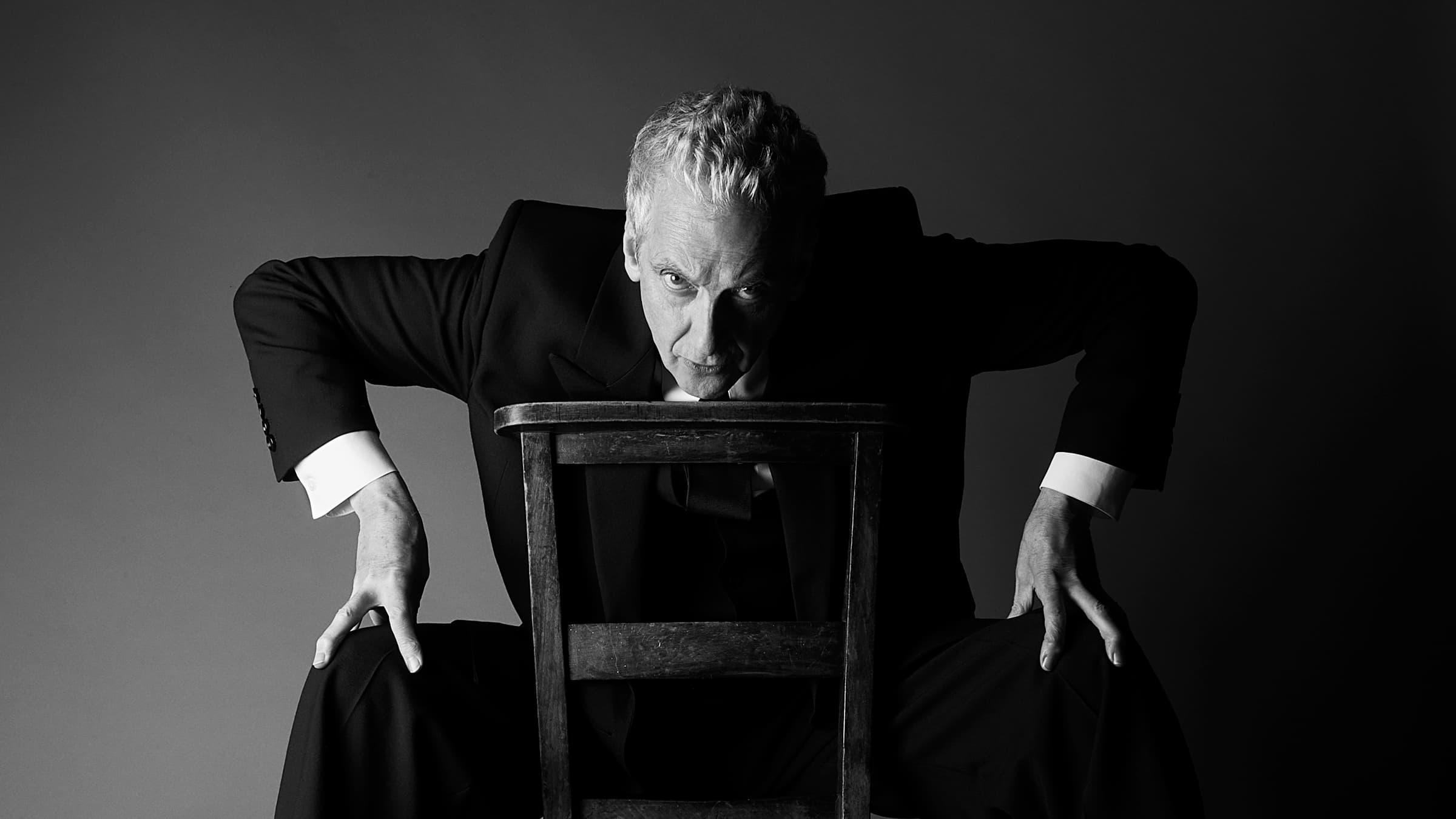
It’s a particularly baltic Wednesday afternoon when Peter Capaldi joins me over Zoom, and upon his arrival, I’m met with the actor’s frozen face. But thankfully, Capaldi hasn’t frozen over due to the arctic winds passing through the UK; it’s just the good old inconveniences and unpredictability of technology. After deciding to proceed with our chat minus the visual of Capaldi across from me, he admits life is rather hectic right now thanks to the promo run for his latest show, Apple TV+’s Criminal Record, and simultaneously working on another project. Still, despite his busy schedule, he’s in bright spirits. “I think if you’re an actor and you’re very busy, you’re very grateful that you’ve got work,” he says.
Today, the Glaswegian is revered as one of the most talented and loveable actors in the UK; however, for an excruciating period, Capaldi’s future was shrouded in uncertainty. His creativity was present from a young age, and he’d developed a passion not only for acting but also for music and drawing. Unfortunately, he wouldn’t make it into the prestigious drama schools that favoured those from a far more affluent background than Capaldi’s humble beginnings, leading him to enrol at Glasgow Art School. Eventually, in his 20s, Capaldi would go on to take on small supporting roles before things finally seemed, or so he thought, to have clicked in his 30s. He won an Oscar in 1995 as writer and director of the short film Franz Kafka’s It’s a Wonderful Life, but, sadly, subsequent projects collapsed, and it was back to the drawing board. At this time in his life, Capaldi wasn’t just providing for himself but his wife and daughter, too, as well as a mortgage, which he was struggling to pay off. Things were looking bleak. Then, out of the blue, in the early 2000s, fellow Glaswegian Armando Iannucci asked him to be in his new sitcom, The Thick of It, giving him cult status as the forever quotable and always sweary spin doctor Malcolm Tucker. And eventually, Capaldi would achieve household-name fame as the 12th Doctor in Doctor Who – a prestigious role he held between 2013 and 2017.
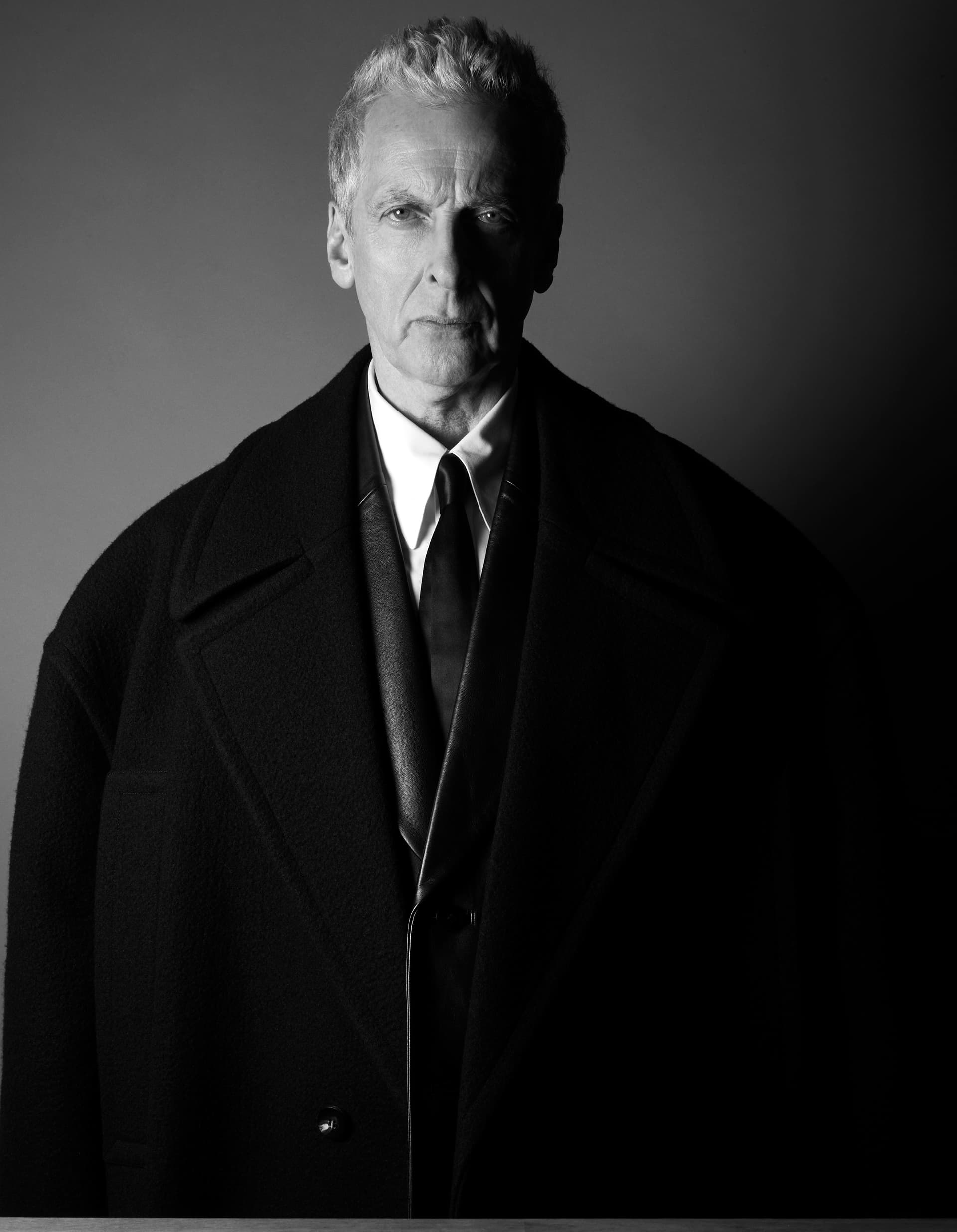
Fast forward to 2024, and the 65-year-old’s latest endeavour, the aforementioned eight-episode series Criminal Record, is a first for Capaldi: he’s playing a cop. Portraying DCI Hegarty, a decorated member of the London Metropolitan Police, Capaldi’s character comes to blows with DS June Lenker (Cush Jumbo), a talented young detective looking to prove herself on the force. Hegarty’s competence is called into question when an anonymous phone call comes in, resulting in a reevaluation of one of Hegarty’s old investigations, leading to the reopening of the case. Still, it’s not your by-the-numbers detective show, and Criminal Record doesn’t shy away from the very real issues that plague the Met, such as racism, misogyny and sexism – all of which were found to be happening at a rampant level in a recent independent government report. And While we may have become accustomed to Capaldi’s more expressive performances as Tucker and Doctor Who, this time, he takes on a more withdrawn figure, struggling to come to terms with the inevitability of a dwindling career, as well as his inner flaws and skeletons. The crime thriller is just three episodes deep, and it’s already shaping up to be one of the most enthralling, anxiety-inducing watches of the year, adding yet another jewel to Capaldi’s wondrous resumé.
Here, we sit down with Capaldi to discuss his role as Hegarty, why he was too reserved to play Doctor Who, and the lack of support for working-class actors…
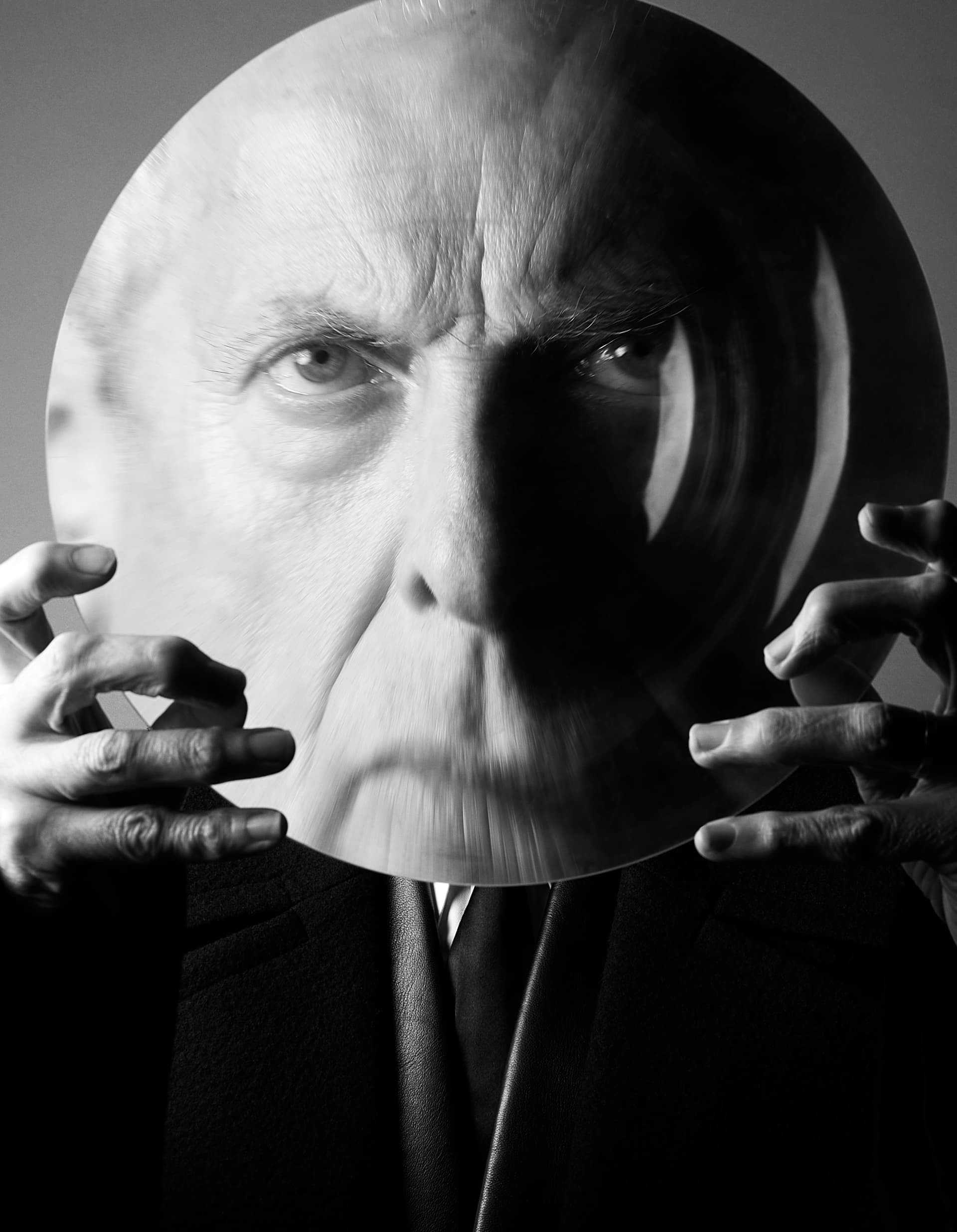
HUNGER: So, Criminal Record recently premiered, Congratulations! I feel like I’m still recovering from the anxiety of the first two episodes. Even at this point in your career, do you have any nerves before something is released to the public?
Capaldi: Thank you! I get very nervous because there’s never really a guarantee that people are going to like it. You do everything you can to try and make it work when you’re in production. But at the end of the day, it’s a gamble, and people can just simply not like it, which they’re perfectly entitled to do. And that can be a little bit of a downer if you’ve spent a long time on it and you have some hopes and some belief in it yourself. So the fact that people seem to have liked it is very heart-warming. I try to stay away from the reviews and reception as much as I can, but sometimes it’s impossible.
Was there ever a time in your career when you were more caught up in the reactions of the public and critics?
Capaldi: I think when you’re young, it’s always nice to see your name in print. Yeah. But then, when people don’t put your name in print and they ignore you, that can be a bit depressing. And then, when they say unpleasant things about you, that can be quite hurtful. So, I think I just avoid it because I find I’m quite fragile. Also, if you believe the good ones, then you’ve got to believe the bad ones.
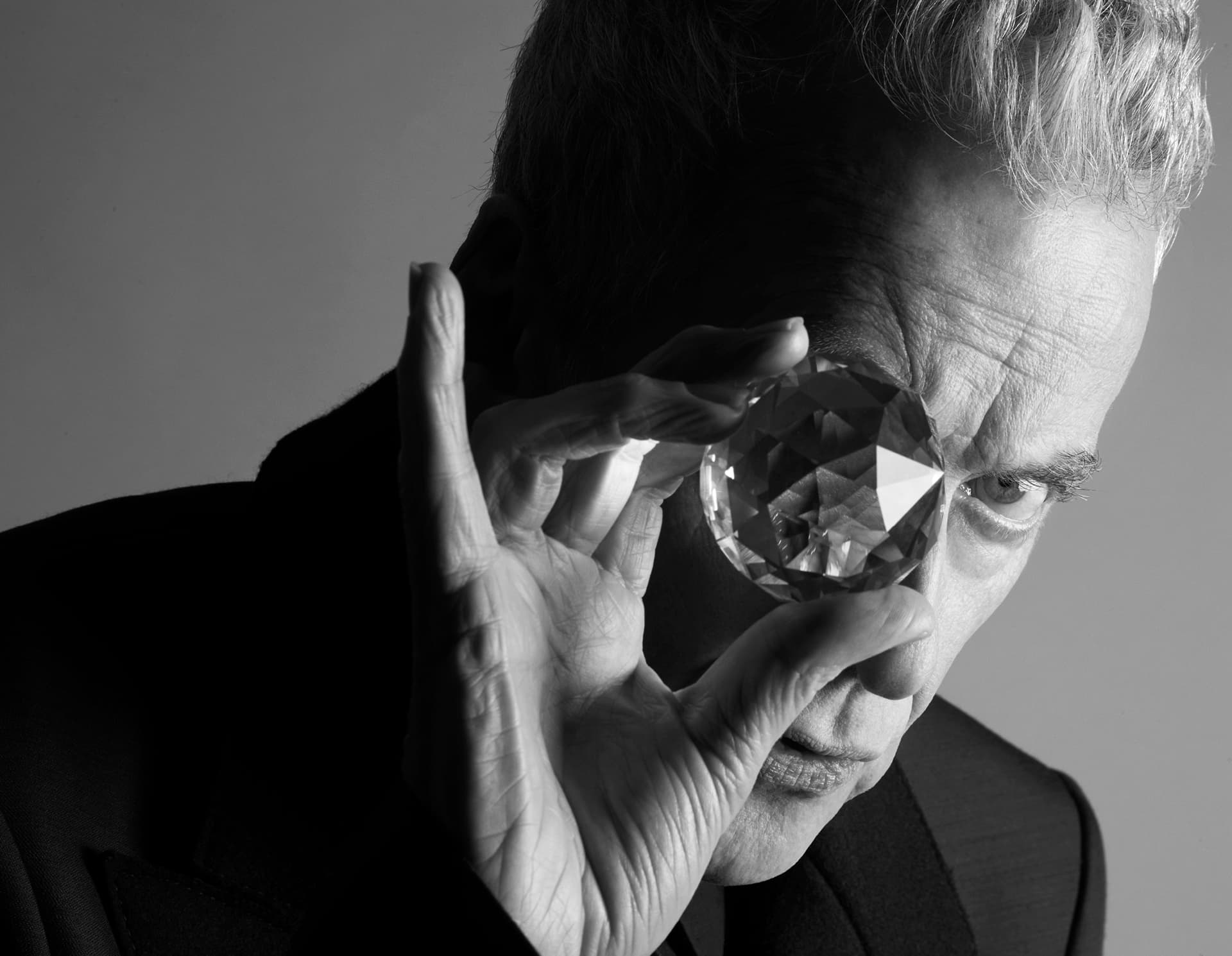
Moving on to the show itself, you also joined your wife, Elaine Collins, as an executive producer. When you first heard about the project, was the role of Detective Hegarty something you were instantly drawn to?
Capaldi: Yeah, Elaine is a genuine producer and had been developing this idea for a little while after becoming fascinated with why people withdrew confessions and why they would confess in the first place. So, she had been trying to put together a drama based around such a thing. She was working with the writers, and they were talking back and forth about it in the house, and I just said that I thought the character of the cop [Hegarty] was very interesting. And they said, “Well, you know, we were thinking you might be interested in that role anyway.” But that was at a very early stage. So, as they developed it, they had me in mind for that. Then my interest grew, and I was able to have some input on the character as well, which was great.
Speaking of the character of Hegarty, he’s got this stoic energy, and it’s almost impossible to tell what’s going on behind his eyes and what he’s feeling at all times. Those withdrawn characters always seem the most interesting to me, so I wonder what are the challenges of playing a role like that?
Capaldi: I think this was a very interesting character for me to play because of that very quality that you’ve landed on, which is that you can’t really tell what he’s thinking. The words don’t necessarily always represent that. Sometimes it’s how you say those words or the look you give as you are saying them. But with Hegarty, it’s important to really hide everything. But you can’t just not do anything. You have to have a story going on inside of you. So that was the hard thing for me, to work out what the story was and to plan it out without giving it away to the audience.
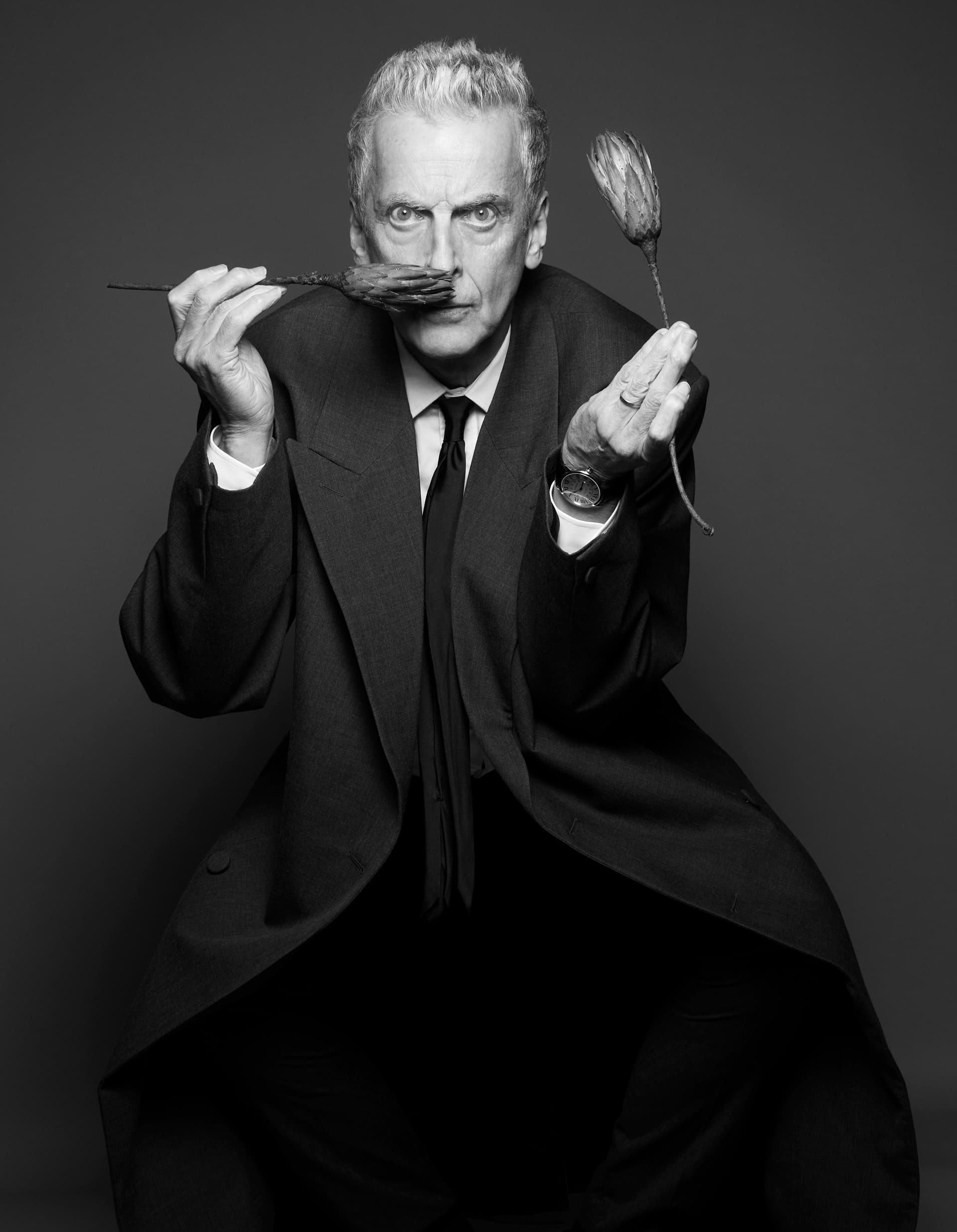
You previously said that whilst you were playing Doctor Who, you couldn’t be the cynical melancholic that you are. Did you feel restricted in that role in comparison to something like this?
Capaldi: I think I’m probably a little more reserved than you have to be to be the face of that particular brand. And obviously, if you’re visiting a children’s hospital, you’ve got to be a cheerful person and a cheerful presence and it was a great privilege to get to do that. When the Doctor shows up, everyone wants them to be him or her, and that’s a great place to be. But it’s not my natural resting place. So, it takes a bit more work, but it was a delightful privilege.
This is also your first role as a cop. How do you feel Hegarty’s character differs from a traditional detective/officer in police shows?
Capaldi: In some ways, he’s very similar to what we’re used to seeing. He’s a bit of a hard bloke and a cynical character who is quite like a lot of other detectives that we’ve seen on TV and in movies before. I suppose what’s different about him is I think that as the series continues, you will see him change as events unfold and as we look deeper into his past. A lot of the time, with TV detectives, they remain the same at the end of the season. We wanted to do something where that wasn’t necessarily the case, and these characters are more affected by what happens to them.
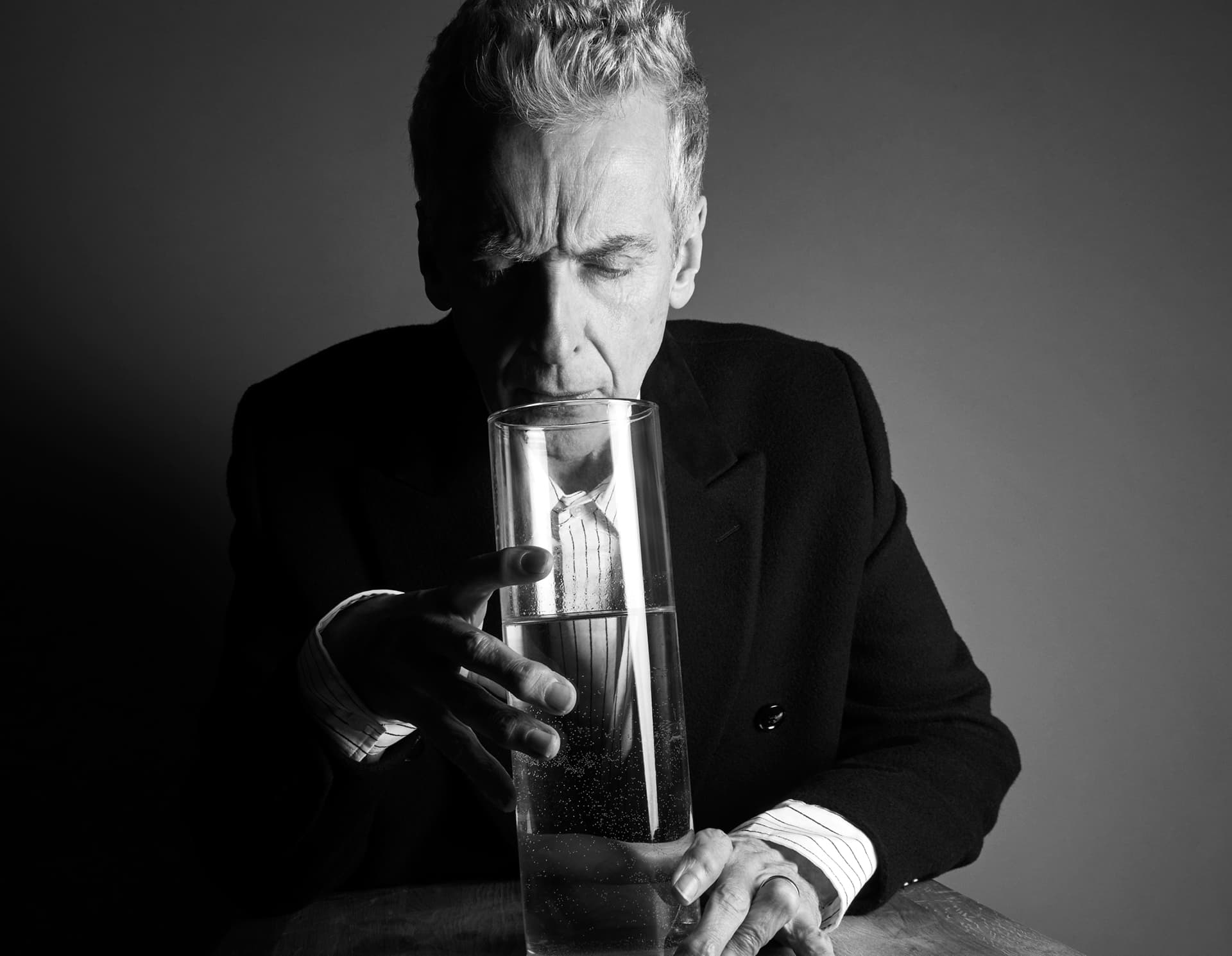
And, of course, you’re starring alongside Cush Jumbo. It seems like the two of you really bring out the best of each other on screen. What was it like working with her on this project?
Capaldi: We’ve actually worked together before, which meant, in a way, we had to introduce some sort of distance. However, we were both much younger when we first worked. I actually directed her in a show called Getting On with Jo Brand, which was an NHS comedy, and I cast Cush in that as a young nurse. Then, we both worked together on Torchwood years ago. But for Criminal Record, without discussing it, we ended up not rehearsing, and we just went for it. So often, what you see on the screen is the first time we do it for each other, which I think helps, because I had no expectation of what she would do or what direction she would take it. But it wasn’t improvising because we remained absolutely faithful to the script. We just didn’t stand around talking about how we were going to do this or how we should do that.
That naturalistic approach definitely translates on screen. I was wondering how much of an impact the recent findings that London’s police force was institutionally sexist, misogynistic, racist and homophobic have on the direction of the show and even the character of Hegarty himself.
Capaldi: It was always there in the show. If you’re responsibly trying to make a show which deals with issues of things like misogyny and racism, you can’t ignore the fact that the Met was found to be full of those unfortunate things. It’s tough because you don’t want to condemn all detectives as being a certain way. So, we had to take it for granted that the audience would understand that there was a culture that allowed these men to behave in this unpleasant way. And the news of that report certainly provided that information. Overall, It would have been silly to make a show about policing in London and not touch on that subject matter.
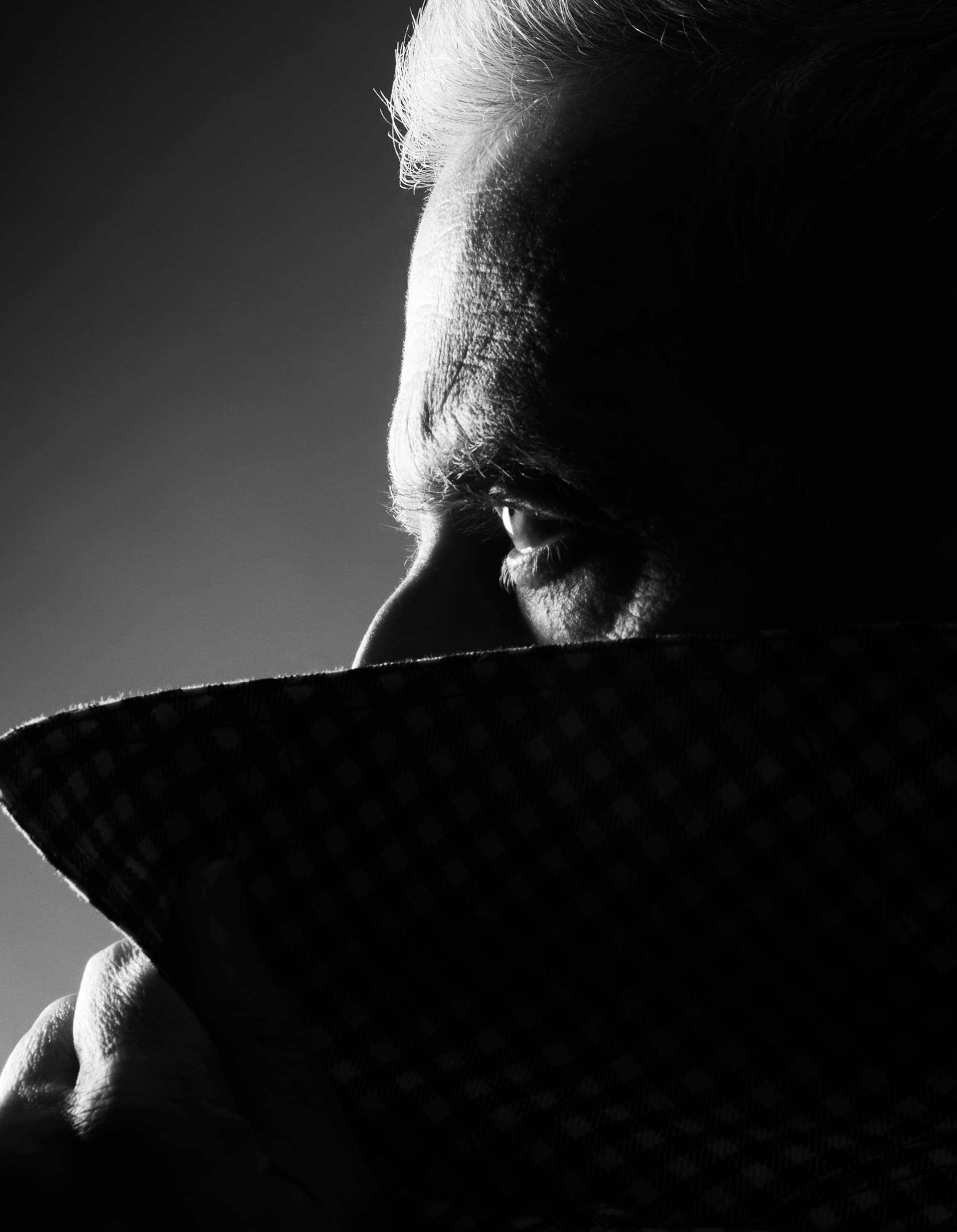
Completely. We briefly touched on it earlier, but you’re an executive producer on the show. What was it like balancing that role as well as being on screen?
Capaldi: Well, I’d come to work one day, and when I was an actor, everyone would be all over me and say, “Would you like a cup of coffee? Can we get you anything?” The next day, I’d show up as an executive producer; there was nothing for me! [laughs] I enjoyed it, but it was tough. There was a lot of work that I had to do. Obviously, there’s the continuing development of the script. And there were things like if Elaine and Paul, who were the main executive producers, were too busy to find music, I got the job of trying to track down a score. The score is quite brilliant, but I had to wade through hundreds and hundreds of tapes and websites to track it down. But it was Michael Asante and Neil Davidge who did a lot of the score, and they’re brilliant composers in their own right. Neil used to work with Massive Attack, and Michael does an awful lot of stage work. So we looked at what they both did independently, and then we asked them if they’d worked together, and they did, and the results were brilliant.
As your career progresses, is being more behind the scenes as a producer something that appeals to you after that experience?
Capaldi: I’m not particularly drawn to it. But In a way, I was part of the process of generating this project. So it’s quite useful when it comes to developing roles. And my wife is constantly developing projects, so even if I’m not employed as an executive, I am unofficially [laughs]. Anything that comes through the house, I’m a sounding board for. But it’s a tough job, and I wouldn’t really like to swap places.
Moving onto your career in general, you’ve directed before and made music as a youngster, and you drew a lot when you were younger. As time goes on, are those avenues something you’d like to explore In the future?
Capaldi: Yeah, I love making music. I went to art school because I could draw, and I couldn’t get into drama school. And when I was there, it was like 1976, and suddenly punk exploded. Everybody was in a band, and so I joined a band. I had a brilliant time, and I loved making music and writing songs, but we never got anywhere. Recently, over the last couple of years, I’ve gotten back into that. I have a friend of mine called Dr. Robert from a group called The Blow Monkeys. And he encouraged me to play and write again, so we did an album [St. Christopher] last year. We’re doing a new one this year, but it’s just a bit of fun.
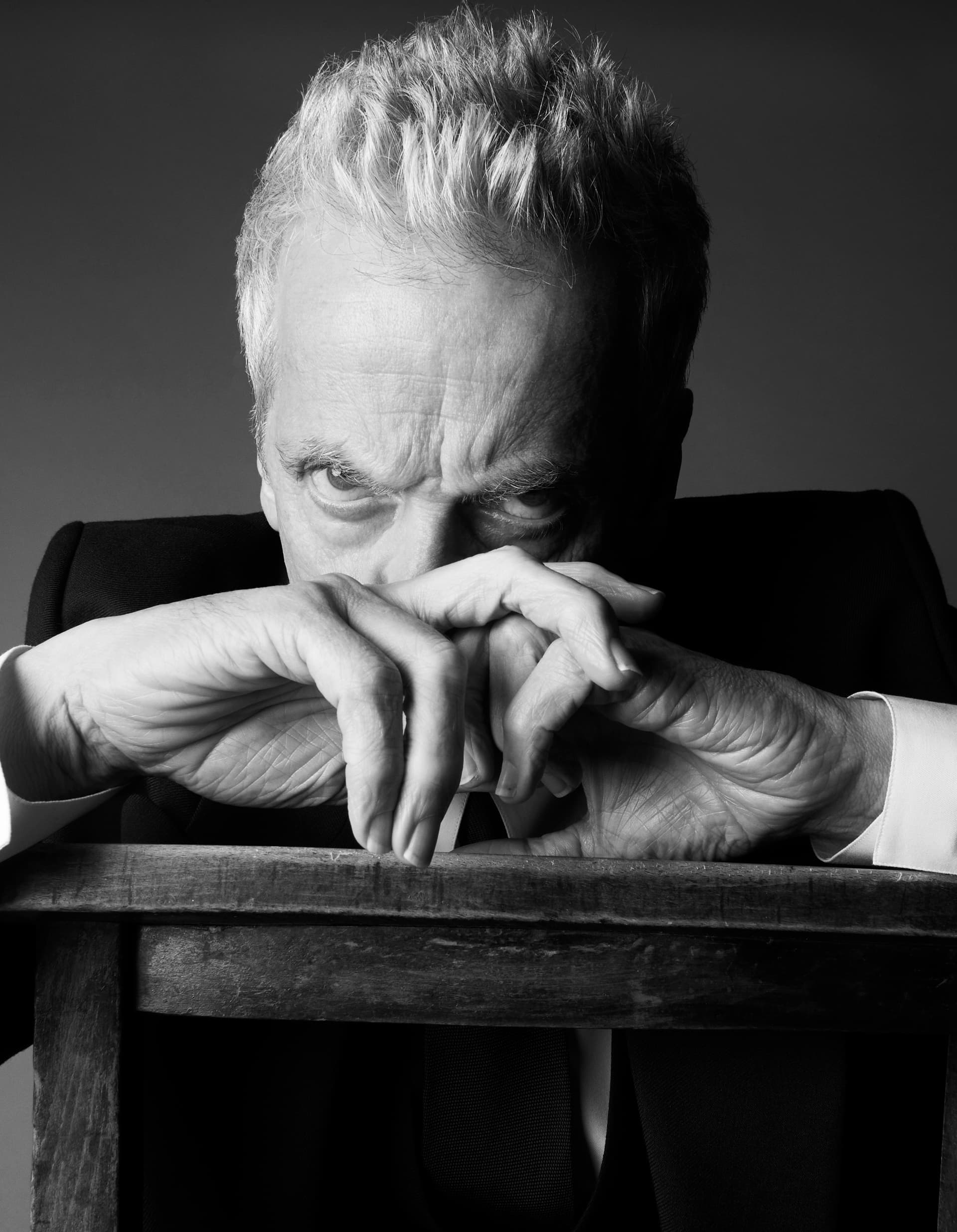
You just mentioned going to art school, which you attended after failing to get into drama school. And you recently spoke to The Guardian where you discussed the challenges that working class actors have with limited access to prestigious schools in the arts. With the current governmental issues, do you feel like we’ll ever see a change in accessibility to those schools in the next few years for those who can’t afford it?
Capaldi: Firstly, I think a lot of people thought I was having a go at posh actors in that interview. But I was having a go at the fact that there wasn’t the opportunities or support for less posh actors. And you know, I think the arts aren’t valued right now. If you have a Prime Minister who says everybody’s got to go up and learn mathematics it shows a kind of blinker. I failed mathematics and that whole part of my brain doesn’t work, but I’ve paid a fortune in tax. I’ve been in a lot of television programs and movies that have made a lot of money. So to try and suggest that if you are of an artistic leaning you’re not valuable to society financially is nonsense. And I just think there has to be more support for people from humble backgrounds who want to be actors, or musicians, or writers, or directors, or whatever. There just isn’t enough support.
Going back to your younger years and after you didn’t make it into drama school, could you ever have imagined that your career would work out the way it has now?
Capaldi: At that point? No. I just wanted to be a part of this creative world, which to me was acting, music, and theatre. That’s what I wanted to do with my life. I wasn’t really quite sure how you got there. And, of course, when you’re young, that’s the greatest disincentive. It’s an enormous wall that you feel between yourself. I would not have imagined that at this mature age, I’d be lucky enough to be in a show like this. But that’s the way it went, that’s the way it worked out, and so I’m very happy about that. Again, fairly early in life, I stopped having any sort of vision of where I should be and what I should do because it became clear that it was so out of my control. I think the key is I decided just to keep showing up. Just to keep trying. That’s hard to do when you’re an actor because you can’t really try. What does that even mean, to keep trying? You need a whole production, cameras, a director, and a script to actually do your job. You just have to keep what dream you have alive and keep trying whatever, in whatever way that you can think of, to take your dream into the world.
Criminal Record is out now on Apple TV+, with new episodes weekly

